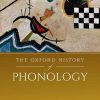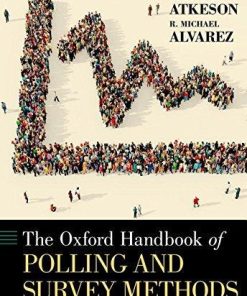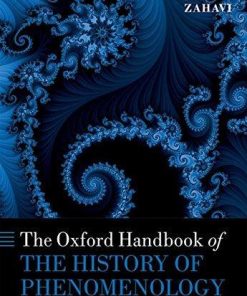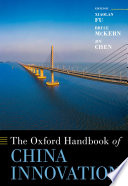The Oxford Handbook of Language Attrition (Oxford Handbooks) Monika S. Schmid (Editor)
$50.00 Original price was: $50.00.$25.00Current price is: $25.00.
The Oxford Handbook of Language Attrition (Oxford Handbooks) Monika S. Schmid (Editor) – Ebook Instant Download/Delivery ISBN(s): 9780198793595,0198793596,9780192512192,0192512196
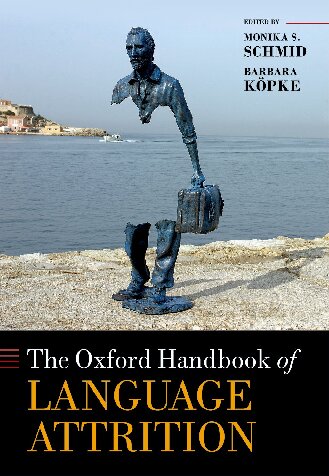
Product details:
- ISBN 10: 0192512196
- ISBN 13: 9780192512192
- Author: Monika S. Schmid, Barbara Kopke
This volume is the first handbook dedicated to language attrition, the study of how a speaker’s language may be affected by crosslinguistic interference and non-use. The effects of language attrition can be felt in all aspects of language knowledge, processing, and production, and can offer unique insights into the mind of bilingual language users. In this book, international experts in the field explore a comprehensive range of topics in language attrition, examining its theoretical implications, psycho- and neurolinguistic approaches, linguistic and extralinguistic factors, L2 attrition, and heritage languages. The chapters summarize current research and draw on insights from related fields such as child language development, language contact, language change, pathological developments, and second language acquisition.
Table contents:
1. Introduction
Part I: Theoretical Implications of Language Attrition
2. Language Attrition and the Competition Model
3. Language Attrition and the Feature Reassembly Hypothesis
4. The Interface Hypothesis as a Framework for Studying L1 Attrition
5. Implications of the Bottleneck Hypothesis for Language Attrition
6. A Complex Dynamic Systems Perspective on Personal Background Variables in L1 Attrition
Part II: Psycholinguistic and Neurolinguistic Approaches to Language Attrition
7. Introduction to Psycholinguistic and Neurolinguistic Approaches to Language Attrition
8. Language Attrition as a Special Case of Processing Change: A wider cognitive perspective
9. Memory Retrieval and Language Attrition: Language loss or manifestations of a dynamic system?
10. How Bilingualism Affects Syntactic Processing in The Native Language: Evidence from eye movements
11. First Language Attrition and Developmental Language Disorder
12. Ageing as a Confound in Language Attrition Research: Lexical retrieval, language use, and cognitive and neural changes
13. Linguistic Regression in Bilingual Patients with Alzheimer’s Disease
14. Electrophysiological Approaches to L1 Attrition
15. Neuroimaging Perspectives on L1 Attrition and Language Change
Part III: Linguistic Factors in Language Attrition
16. Introduction to Linguistic Factors in Language Attrition
17. Phonetic Drift
18. Phonetic Attrition
19. Phonological Attrition
20. Morphological Attrition
21. Lexical Attrition
22. Null and Overt Pronouns in Language Attrition
Part IV: Extralinguistic Factors in Language Attrition
23. Introduction to Extralinguistic Factors in Language Attrition
24. Age Effects in Language Attrition
25. The Impact of Frequency of Use and Length of Residence on L1 Attrition
26. L1 Attrition, L2 Development, and Integration
27. Language Contact and Language Attrition
Part V: Second Language Attrition
28. Introduction to L2 attrition
29. Exploring the Impact of Extralinguistic Factors on L2/FL Attrition
30. Syntax and Phonology in L2 Attrition: Modularity and resilience
31. L2 Lexical Attrition
32. Attrition studies on Japanese returnees
33. Event-related Potentials as Metrics of Foreign Language Learning and Loss
Part VI: Heritage Languages
34. Introduction to Heritage Language Development
35. Quantifying Language Experience in Heritage Language Development
36. Intra-Generational Attrition: Contributions to heritage speaker competence
37. 2L1 Simultaneous Bilinguals as Heritage Speakers
38. Language Loss and Language Learning in Internationally Adopted Children: Evidence from behaviour and the brain
39. Childhood Language Memory in Adult Heritage Language (Re)Learners
40. Language Development in Bilingual Returnees
People also search:
second language attrition
how to prevent language attrition
causes of language attrition
how to reverse language attrition
language attrition.org
You may also like…
Reference - Genealogy & Family History
Erotica - Fiction



